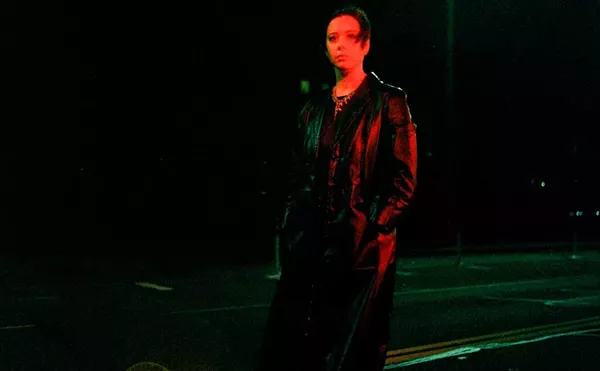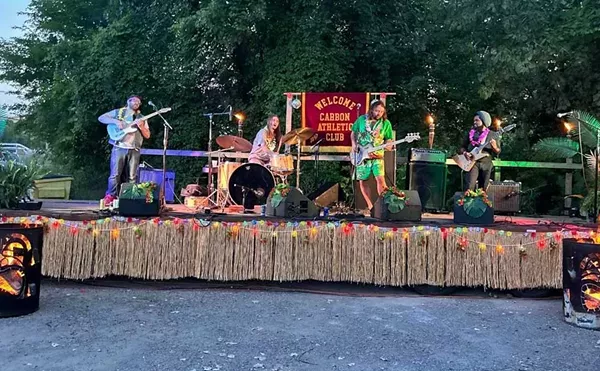
Audio By Carbonatix
[
{
"name": "GPT - Leaderboard - Inline - Content",
"component": "35519556",
"insertPoint": "5th",
"startingPoint": "3",
"requiredCountToDisplay": "3",
"maxInsertions": 100,
"adList": [
{
"adPreset": "LeaderboardInline"
}
]
}
]
Signed by Rick Rubin to American Recordings in 1997, the band recorded an impressive self-titled debut with producer Sylvia Massey (of Tool acclaim) and Rubin at the boards. The band’s astonishing 22 months of touring, 19 since the album’s release (rolling through Detroit no fewer than three times in the past year alone), and incendiary live performances have been the key components to its burgeoning popularity. With its headlining slot on the "Sno-Core 2000 Tour" (representing the virtual vanguard of "new metal") and a new single, "Spiders" (included on the Scream 3 sound track and getting radio play), System of a Down is inching toward gold status. As SOAD was getting ready to return to Detroit this week, Metro Times caught up with guitarist Daron Malakian to find out a little more.
Metro Times: Let’s talk a little about your track, "P.L.U.C.K. (Politically Lying, Unholy, Cowardly Killers)."
Daron Malakian: Lyrically, it’s about the Armenian genocide. The Turkish government killed off 1.5 million Armenians in 1915. It’s a tragedy that’s never been properly recognized by the United States government – it’s never been given its proper due. It hurts, and that’s something that’s been imbedded in us for life. That’s where we’re coming from. All four members of this band come from Armenian descent, so it’s something that’s near to us every day.
MT: As you mentioned, the band’s Armenian heritage has been a consistent source of lyrical inspiration. Unlike Rage Against the Machine, though, it appears that your concern is more of a "worldwide" humanitarian mantra.
Malakian: Let me make this clear – we’re not a political band. We have nothing in common lyrically with Rage. On our record, there are songs about violence, suicide and how much they have affected our social life. We could also turn around and write a love song. No problem. People have a misinterpretation of what the band is all about and how we live our lives.
MT: When a kid goes to your show, how important is it to you that he or she understand your agenda?
Malakian: We just want kids to have a good time. At the end of the day, that’s what matters. After listening to our music we also hope that they understand a little more about what goes on in the world. But, again, our main goal is for everyone to have a good time. Let out a lot of steam. If a kid gets pissed off at the government, let it out. If you’re pissed off at your boyfriend (or your) girlfriend, let it out. Get in the pit and have a good time.
MT: After 22 months on the road, what are your plans after this tour?
Malakian: I don’t see us doing anything past the Sno-Core Tour, except a possible radio show here and there. We need to get back into the groove of being a band in a rehearsal studio – we’re all trying to get focused every night preparing ourselves for the show. It’s important that we get back into the "rehearsal space" process of being a band and grooving together. Put the road behind us and concentrate on that.
MT: Will your next record be a departure from your debut?
Malakian: I write most of the music and I have a lot of material written. I would like to maintain the band’s sound. As I said, I’d like to get the band in the rehearsal studio. We’d definitely like to work with Rick Rubin again. The last time I talked to Sylvia Massey, she was moving to the mountains. John Lewis writes for the Baltimore City Paper, where this piece first appeared. Franck writes about music and metal mayhem for the Metro





